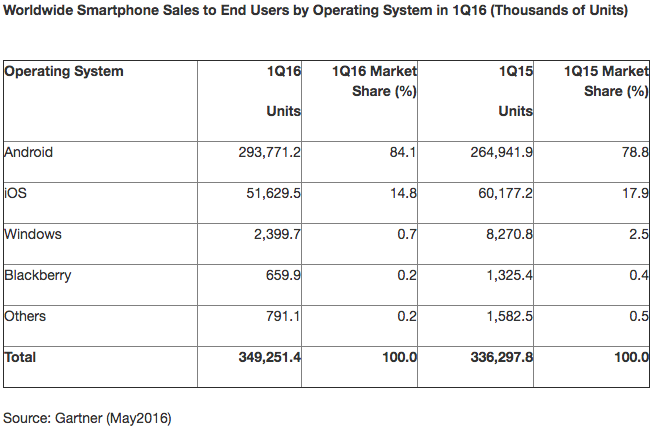Whatever you do, don’t buy these smartphones

There is nothing in consumer tech right now that's as hot as the smartphone market, even as it nears saturation in many regions, and the real beauty of it is that there are so many options. Every company out there wants a piece of the action and they're all looking for ways to differentiate their products, so there really is something for everyone. It's not easy to make a choice that can truly be considered wrong since different people have different needs and wants, but there is one line of smartphones that people probably shouldn't bother with unless they having a burning desire to dump hundreds of dollars into a dead platform.
As noted by market research firm Gartner, Windows Phone's share of the global smartphone market actually fell below 1% this past quarter for the first time ever, market yet another stop on Microsoft's one-way trip to smartphone irrelevance. As such, the worst mistake you can make when buying a new phone is to buy a Windows Phone, unless you're fine with burning cash on a platform that's on its way out.
Actually, there is one smartphone platform that somehow has an even lower share of the global market — BlackBerry OS — but it's so low that it's not even worth discussing anymore.
HUGE LEAK: This is our first look at a real iPhone 7
According to Gartner's estimates, smartphone shipments grew 3.9% in the first quarter of 2016 compared the same quarter one year earlier. That seems like a small figure, but it's pretty impressive when you consider how far iPhone sales fell between January and March. Gartner says total "smartphone sales," which is a figure that actually includes end-user iPhone sales and estimated channel sales for other brands, reached 349 million units in the quarter.
Samsung led the way with estimated shipments totaling 81 million units, which is indeed a massive number that was bolstered by the launch of the Galaxy S7 and Galaxy S7 edge. Chinese Android brands grew too fast in the quarter though, so Samsung's global market share actually fell to 23.2% in the first quarter from 24.1% in the same quarter last year.
Meanwhile, Apple's global smartphone market share saw a much bigger drop, from 17.9% in Q1 2015 to 14.8% in Q1 2016.
"In a slowing smartphone market where large vendors are experiencing growth saturation, emerging brands are disrupting existing brands' long-standing business models to increase their share," Gartner research director Anshul Gupta. "With such changing smartphone market dynamics, Chinese brands are emerging as the new top global brands. Two Chinese brands ranked within the top five worldwide smartphone vendors in the first quarter of 2015, and represented 11 percent of the market. In the first quarter of 2016, there were three Chinese brands – Huawei, Oppo and Xiaomi – and they achieved 17 percent of the market."


Related stories
10 paid iPhone apps on sale for free for a limited time
Siri brews coffee and even starts a party thanks to a $150 DIY home automation setup
11 paid iPhone and iPad apps on sale for free today
More from BGR: Watch the Britney Spears BMA performance that the internet is going crazy over
This article was originally published on BGR.com

